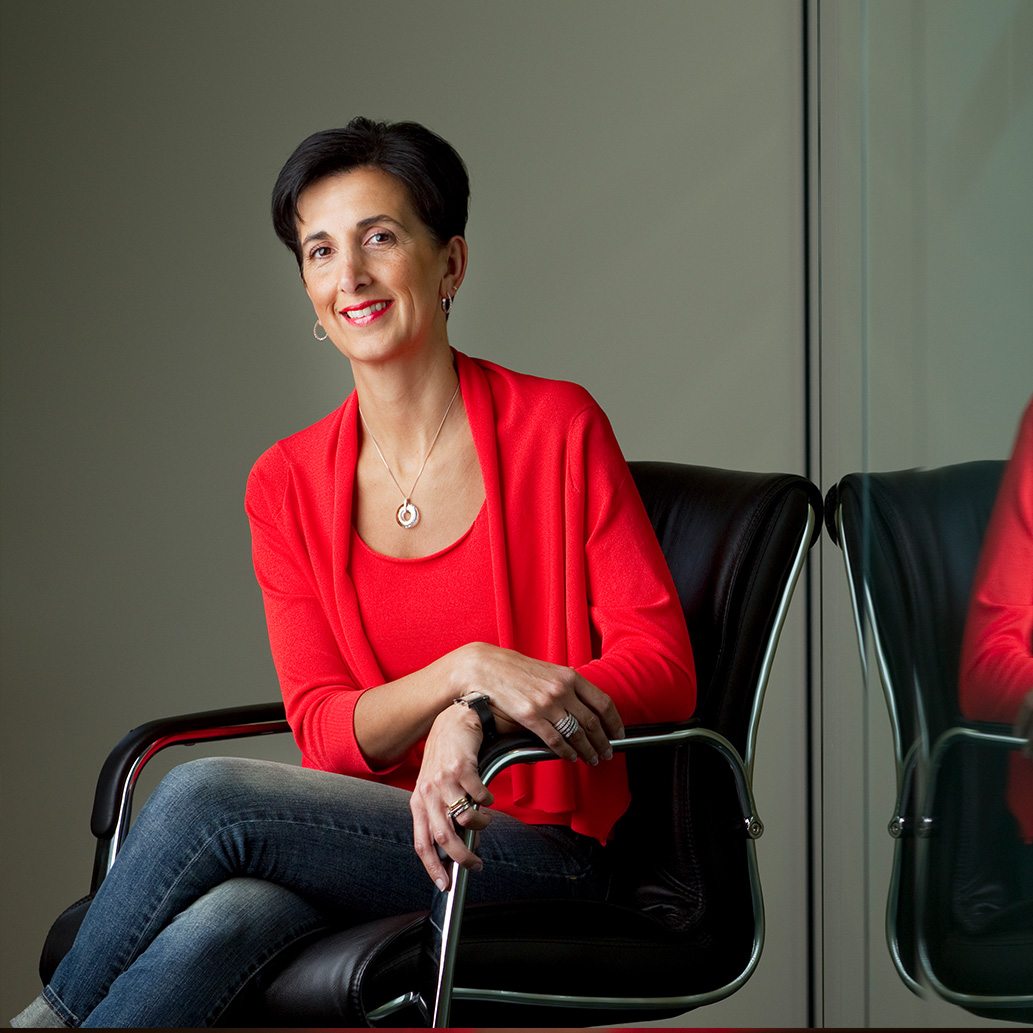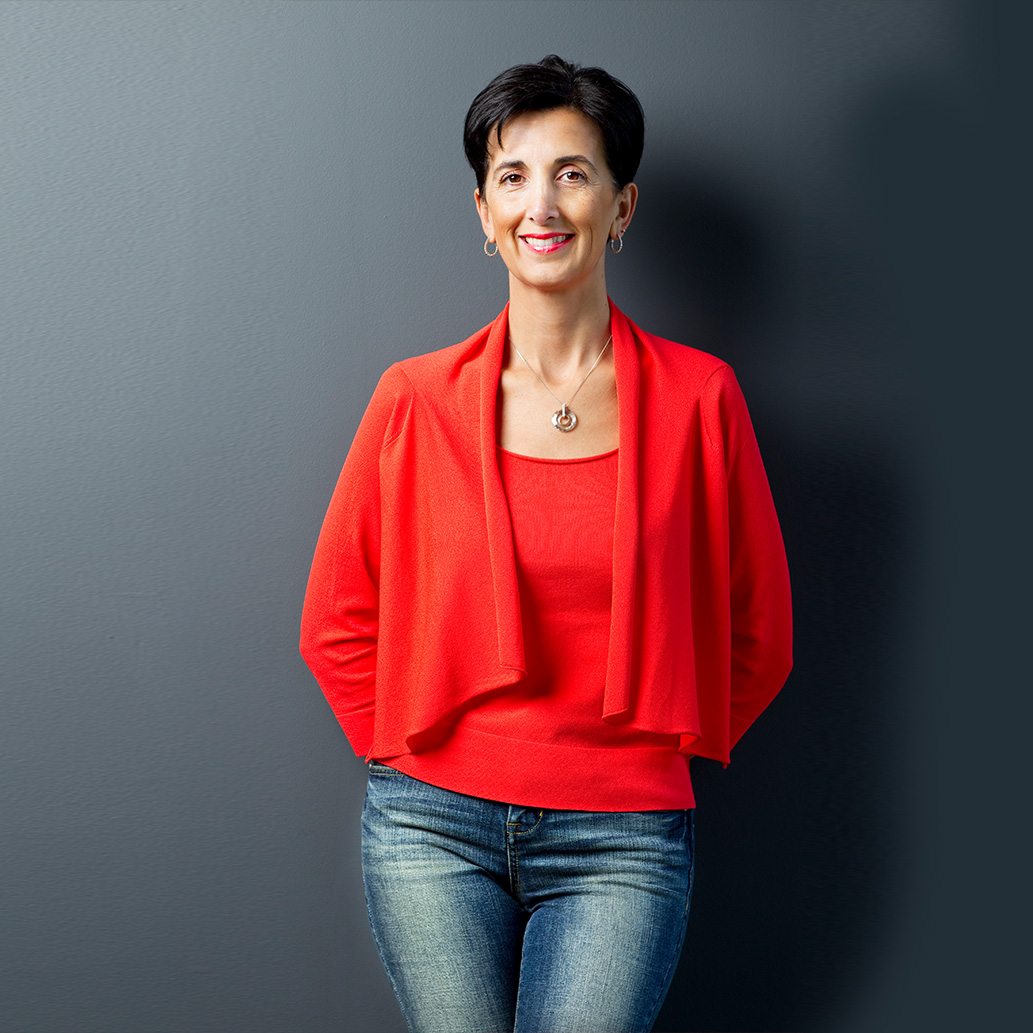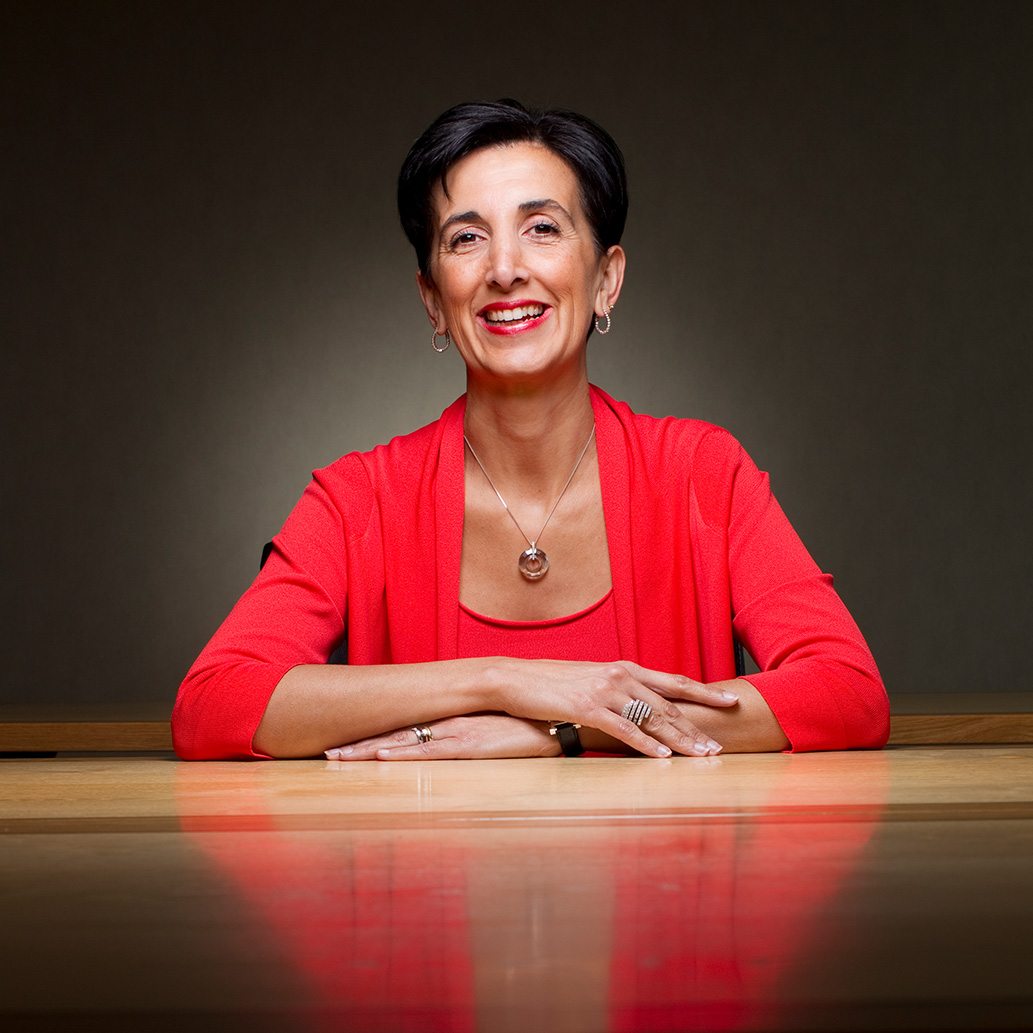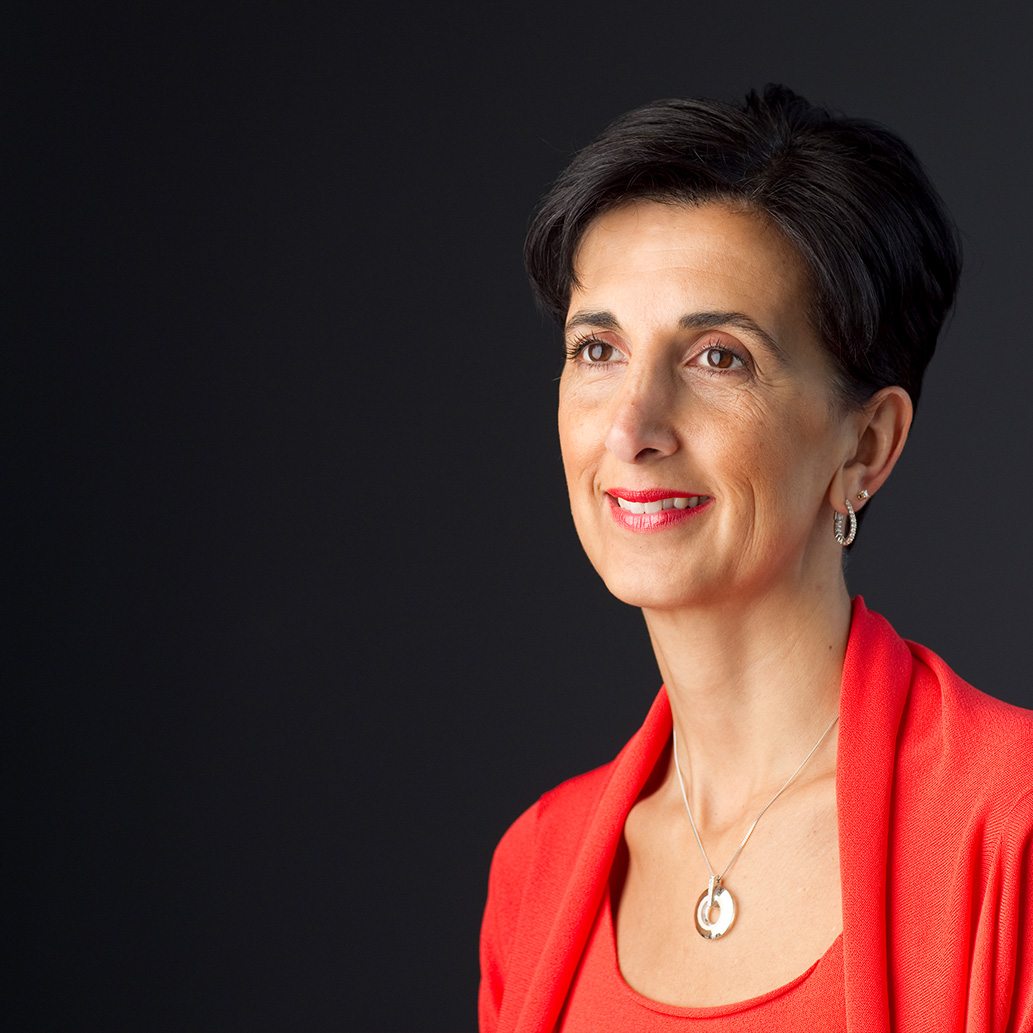Tea, tell us about your early career and what it was that made you decide on a career in HR.
I started my career as a lawyer, graduated in Italy and I wanted to do something outside of Italy, to leave the country. I got a scholarship for a Masters degree in European law. After that, the school sent me to Brussels to a law firm as a trainee to complete my studies. I was only supposed to be there for six months and ended up staying for six years. Predominantly involved in European law and legislative developments with the commission and parliament, in my early 20s, I found myself dealing with international organisations on matters as broad as telecommunications, competition and agricultural law. I worked with lawyers throughout the world and it was a fantastic experience, and I was able to set up my own practice in employment law. But, after a while, it got a bit repetitive and I realised that what I was missing was action! I wanted to be part of the decision?making processes and work in a corporate environment.
Then an opportunity came up from one of my clients, a company called Global One, as an employee relations director, and that was exactly what I wanted to do. As it turned out, working for a joint venture with three shareholders was very chaotic, no one would make decisions, there wasn’t a clear strategy nor sense of purpose. That experience gave me exposure to a business environment and a first taste for managing people. I actually ended up getting involved in generalist HR matters and my legal background was definitely an advantage here, and indeed it has always given me credibility, which has been really useful throughout my career. I was there for two years and in that time, I had seven different bosses. So, a lot of change, constantly adjusting strategy to keep up with it all, and it was quite difficult to make an impact, because there was literally no time to do well-planned HR.
I was headhunted for a job in telecoms in London, at what was then known as GTS. The company was brilliant and very fast paced. I was involved in acquisitions all over Europe, travelled to India and America and thoroughly enjoyed my time there. When the company decided to focus on its broadband business, I was tasked with selecting the best people from the organisation to start Ebone with a new CEO and had the massive task of creating new employment contracts, pay scales, grading, incentive plans and policies for the new business. We were then acquired by another telecoms company and that was when the telecoms bubble burst. It was probably the toughest time I have had in my career as when the company went into receivership I had to make all the employees – including myself – redundant.

After such a rapid early career path, that must have been quite a shock.
I’d never been unemployed and in a position where I had to look for a job before then. I was very lucky as within four weeks I joined Hilton International as Vice President of Human Resources for their Europe & Africa region. Unquestionably, this was the role that really defined me as a HR professional. At first it was daunting, moving to such a huge and established corporation, but the good thing was, all the HR systems and policies were in place to deal with a business which operated on a huge scale. It gave me great exposure in a completely different sector, and I was a member of the European board and able to leave my mark in terms of people development, mentoring, employee engagement and overall culture.

What surprised you most about hospitality and why did you think you engaged in that environment so quickly?
I had come from a very technical and specialised environment and the transition to a customer service environment required a completely different mindset in terms of how to attract, motivate and engage with people. It was the first time I had the time, resources and measures in place to focus on good HR practice policies. So, really thoughtful assessments and mentoring, and lots of initiatives to develop people and to establish a really healthy talent pipeline. I was at Hilton for nearly eight years, we were acquired twice in that time, and so again I called on my legal and change management experience, supporting both the senior management team, as well as looking after the employees.

And along came the opportunity at Merlin, in contrast to Hilton, not exactly a household name. What excited you about this job prospect?
When I was first approached, I didn’t know much about Merlin, but it was the leading name in location- based, branded family entertainment, in Europe, the UK’s number one and world number two visitor attraction operator. We own market-leading, iconic global and local brands from; the London Eye to SEA LIFE, from LEGOLAND to Madame Tussauds, from Warwick Castle to Gardaland in Italy. We have 92 attractions in 20 countries over four continents, 18,000 employees and 46 million customers – our ambition is to be the number one visitor attraction operator in the world.
I was attracted by the scale of the business, the passion of the people I met during the interview process, and the vision for the future, and I wanted to be part of it. They wanted to professionalise the HR function, and were looking for someone who could align the HR strategy to the business strategy. The company has grown through a number of subsequent acquisitions and HR had to align itself to where the business was and, more importantly, where it was going. I could not resist the challenge!
So given your objectives, what was your HR blueprint?
My focus has been around three main areas. The first one has been around equipping the organisation with the leaders of the future, as the company grows to 120 attractions by 2015. We invest heavily in the development of people at all levels from excellent customer service to health and safety to leadership development. We have put in place a succession-planning mechanism that gives us a healthy talent pipeline across 75 percent of our senior leadership roles. The second area is around employee engagement and retention. In 2010 we launched the Merlin Way, our values, and have been very successful in terms of engaging with our employees at all levels. Last year we ran the Merlin Way film competition and we received over 100 entries from individual employees and teams who were keen to tell us why they enjoy working at Merlin so much.
Our engagement score sits at 86 percent and we are very proud of that. Finally, the third area is around harmonisation of terms and conditions in a business that has grown organically and through acquisitions. When I first joined the business we had ten different employment contracts for our senior leaders, three different pension schemes, a variety of creative benefits and that was just in the UK! Two years down the road we have harmonised 95 percent of our contractual and non contractual terms in the UK and, by the middle of next year, we will have completed the harmonisation programme in Germany and the US. At the same time and as a result of recent acquisitions, we have started to harmonise terms and conditions in Australia and Asia.
I guess you’ve got to start on the right foot if you go into a business and start making changes to contracts, terms & conditions. They’ve got to be seen to be better than what they replace. We have invested heavily in communicating the reasons why we were making the changes and everyone understood we had to do it. I think people were relieved as everybody found the discrepancies frustrating. Our harmonisation has been driven by fairness and being aligned to market conditions, we try not to take things away from people. Invariably, you have some people that have more favourable T&Cs, and others, the complete opposite. But what you must strike is an equitable median between the two. I am confident that we’ve got things just about right.
Hospitality might not be high on the list of desired careers for top talent, how do you go about attracting talent?
Merlin is a very attractive company to work for. We have a successful track record over the last ten years and are on an exciting growth trajectory, with the ambition to become the number one visitor attraction operator in the world. We offer amazing opportunities across our 92 attractions. We have a very lean structure which means that our leaders have real accountability and the opportunity to make a difference. You don’t get lost in a matrix environment with a niche job that does not have teeth, and we think this is a very compelling proposition for any talented individual. We have been successful in attracting high calibre leaders from the FMCG environment in key marketing roles over the last couple of years as well as top graduates through our XCalibre programme.
So how have you managed to do this in a relatively short period of time?
The environment is informal and fun and our values are genuine. Our senior leaders believe in them and role model them. Our culture is based on listening to our employees and taking action. Last year our employees, through the “Wizard Wants to Know”(our employee survey) told us to raise awareness of the work Merlin – through its SEA LIFE brand – does in terms of marine conservation. We have listened and have just launched a website with a video that tells the story of our commitment to conservation and what we do in terms of breeding, rescuing and protecting the sea creatures in our care, or those that get threatened or damaged by changes in the environment or by human intervention. We have also posted a number of blogs from employees who are involved in conservation initiatives across the globe and launched a competition for those who want to be involved in protecting our environment. The response has been fantastic and has generated a sense of pride in the work we do. So listening and acting on the feedback is very important to us. Equally. if there is something we cannot do, we take the time to explain why that is the case. People value that and they tend to stay with the business, and I think that we offer great career progression for those who want to grow with the business.
Engagement is an increasingly important part of the HR cannon, give us an idea of how you set your HR strategy in a rapid expansion environment?
We have a very small HR team at the head office in Poole serving more than 18,000 employees globally. In addition, we are organised around 19 divisions and each one of them has a local HR team. We bring them together for a “webex” every quarter and once a year for a global conference. Centrally, we focus on initiatives that affect all of our employees from a Merlin perspective or where we can leverage our group position. Locally, the HR teams have ownership of their recruitment, individual brand engagement and employee retention and we are very collaborative and engage with the local HR teams on everything that we do. It is essential that we get them on board early, and we take into account their local and cultural requirements.
In terms of recruitment how much control do you have internationally?
Centrally we would only recruit for senior roles, such as a divisional director or head of HR roles. We also do a lot in terms of raising awareness of Merlin as an employer of choice. People identify with Alton Towers or Thorpe Park and, for us, it is important that they also understand the opportunities we offer. Our career website and employee induction give extensive information about the business, all of our attractions, our culture and so forth.
With such a direct customer-facing environment there is almost no room for error, whether that be health & safety or customer satisfaction and experience.
Absolutely, we provide extensive training in terms of health and safety and adhere to relevant regulations in this field. Our training programmes focus on delivering excellence in customer satisfaction and we monitor this closely, encouraging a culture whereby every employee feels empowered to deliver memorable experiences and care about their own, as well as our customers’ safety.
Values really is the HR buzz word these days.
The Merlin Way, our values, are at the heart of everything that we do and our employees believe in them because they are genuine. Every initiative we launch from a strategic or operational perspective links back to one of our values. I think that being consistent makes it easy for employees to believe in us.
So what’s next for the business and what will it mean for HR?
There is never a dull moment, that is absolutely true. Since the beginning of this year we have acquired ten businesses in Australia and Asia, opened three attractions in North America, a Madame Tussauds in Sydney , a LEGOLAND Discovery Centre in Tokyo (our first attraction in Japan), the LEGOLAND Windsor hotel, a waterpark in LEGOLAND Florida and the SEA LIFE Weymouth Tower in Dorset! And, in September, we will open LEGOLAND Malaysia. We like to keep busy!
Our strategy continues to be focussed on supporting the business as it grows so rapidly in so many different markets. In addition, our role in HR is to help individuals and the organisation as a whole to cope with the demands that come from operating in so many countries and across so many brands, redefining roles, challenging established ways of working and providing our leaders with the skills necessary to operate in such a global environment. So it’s a continuation of our strategy with both the business and HR perspective, absolutely aligned.
It must be strange in a sleepy Dorset town to be at the centre of a large and rapidly growing international business.
We recognised early on that the only way to really keep it close is to have crystal clear directives, communication and, as regularly as possible, face-to-face meetings, where the right messages can be passed through to everyone. We’re very proud of being close to our employees. Personally, I run informal lunches with employees and I find it refreshing. So, just keeping close to our employees is something I feel we are very good at and is fundamental to our business. And people really enjoy having the opportunity to give their ideas and improve the business. With this in mind, we’re about to launch a web-based platform called “Spark An Idea”, accessible to all our employees worldwide, where they can post an idea, or look for inspiration from others, and can “like” ideas and see which ideas have been put into practice. I really believe this will further improve communication and connection as well as creativity across our business.
Does it ever surprise you that HR has sustained its interest to you throughout your career?
I’m not surprised in any way, it feels like it’s been a natural progression for me, and if you asked me if I see myself in HR in the future I would say yes. The function has evolved so much over the last 15 years and, as I have progressed in my capabilities as a practitioner, I have witnessed revolutionary changes in terms of HR’s impact on business strategy. I’m very proud of Merlin and the work my team is doing and we have so many ambitions still to go for. We are working towards being a public-listed company, which will create a whole new dimension to our roles. Plus, we don’t want to be number two in the sector for too long, number one sounds so much better!










